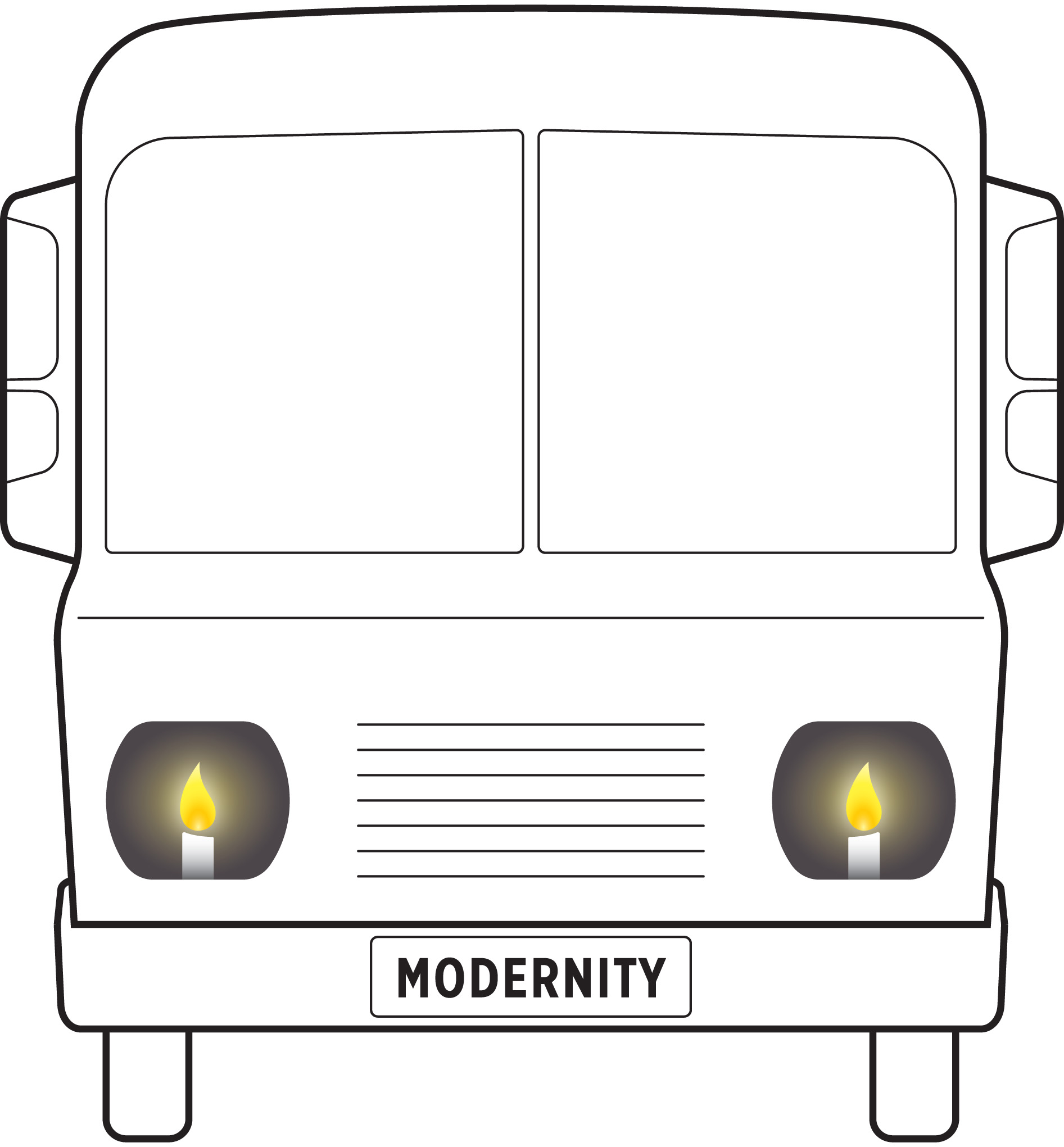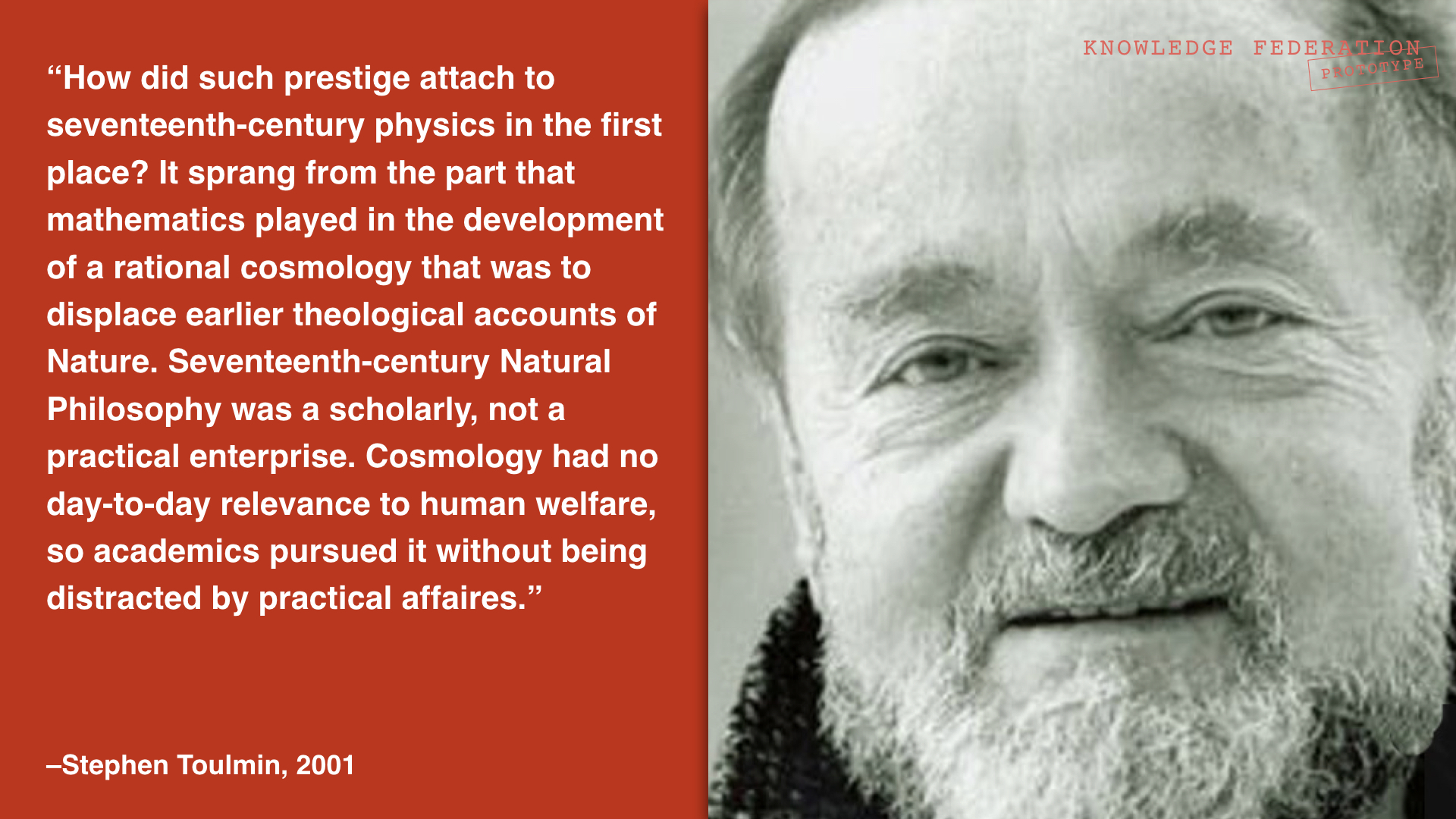Holotopia
HOLOTOPIA
An Actionable Strategy
Imagine...
You are about to board a bus for a long night ride, when you notice the flickering streaks of light emanating from two wax candles, placed where the headlights of the bus are expected to be. Candles? As headlights?
Of course, the idea of candles as headlights is absurd. So why propose it?
Because on a much larger scale this absurdity has become reality.
The Modernity ideogram renders the essence of our contemporary situation by depicting our society as an accelerating bus without a steering wheel, and the way we look at the world, try to comprehend and handle it as guided by a pair of candle headlights.
Scope
"Act like as if you loved your children above all else",Greta Thunberg, representing her generation, told the political leaders at Davos. Of course the political leaders love their children—don't we all? But what Greta was asking them to do was to 'hit the brakes'; and when the 'bus' they are believed to be 'driving' is inspected, it becomes clear that its 'brakes' too are missing. The job of the politicians is to keep the 'bus on course' (the economy growing) for yet another four-year term. Changing the 'course', or the system, is well beyond what they can do, or even conceive of.
The COVID-19 pandemic may require that we update some of our systems, and ways in which we collaborate—now.
So who, what institution or system, will lead us through our next evolutionary task—where we will learn how to recreate the systems in which we live and work; in knowledge work, and beyond?
Both Jantsch and Engelbart believed that "the university" would have to be the answer; and they made their appeals accordingly. But the universities ignored them—just as they ignored Bush and Wiener before them, and others who followed.
Why?
Isn't restoring agency to information and power to knowledge a challenge worthy of academic attention?
It is tempting to conclude that the university institution followed the general trend, and evolved as a power structure. But to see solutions, we need to look at deeper causes.
We readily find them in the way in which the university institution developed. The academic tradition did not originate as a way to pursue practical knowledge, but to freely pursue knowledge for its own sake. Wherever this free pursuit of knowledge takes us—we follow it.
And as we pointed out in the opening paragraphs of this website, by highlighting the iconic image of Galilei in house arrest,
it was this free pursuit of knowledge that led to the last "great cultural revival".
We asked:
Could a similar advent be in store for us today?
The ethos of free pursuit of knowledge, firmly rooted in the knowledge of knowledge—which the academic tradition has been developing since its inception—is deeply woven into the academic ethos and culture; and for good reasons. At the universities, we consider ourselves as the heirs and the custodians of a tradition that has historically led to some of the most spectacular evolutionary leaps in human history. Naturally, we remain faithful to that tradition. We do that by meticulously conforming to the methods and the themes of interests of mathematics, physics, philosophy, biology, sociology, philosophy and other traditional academic disciplines.
For similar reasons we consider the task of curating the standards of, let's call it that, "right" information and "right" knowledge—rooted in age-long exploration of the meaning of information and knowledge, their limits and their relationship with reality— to be the university's core social role. One can learn practical skills in a professional school; the university education gives one the up-to-date knowledge of knowledge—and the ability to pursue knowledge in the right way in any domain.
Can "a great cultural revival" begin at the university?


